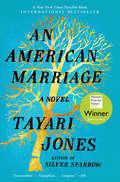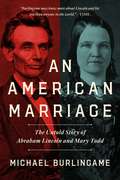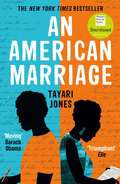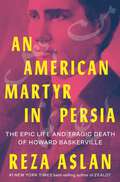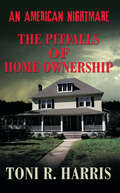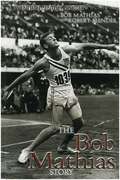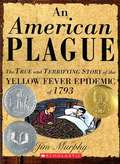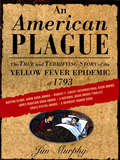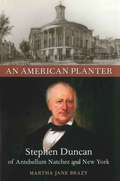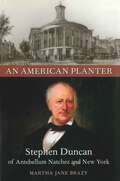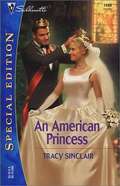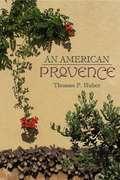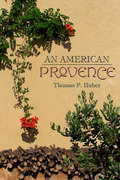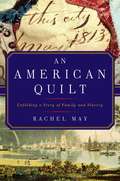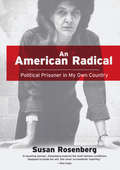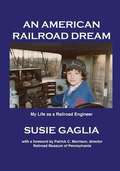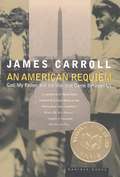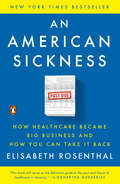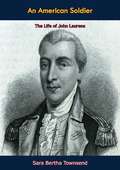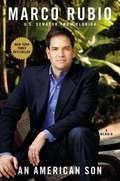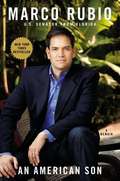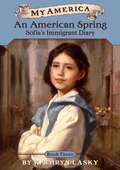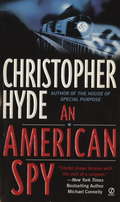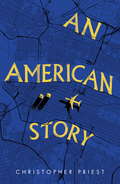- Table View
- List View
An American Marriage: A Novel
by Tayari JonesOne of the most anticipated novels of 2018 according to Entertainment Weekly * Goodreads * Esquire * Elle * Cosmopolitan *BBC * Huffington Post * Bustle * Southern Living * Newsday * Bookish * Nylon * iBooks Store“Transcendent . . . Triumphant . . . Gorgeous.”—Elle“A stunning epic love story . . . An exquisite, timely, and powerful novel that feels both urgent and indispensable.”—Edwidge DanticatNewlyweds Celestial and Roy are the embodiment of both the American Dream and the New South. He is a young executive, and she is an artist on the brink of an exciting career. But as they settle into the routine of their life together, they are ripped apart by circumstances neither could have imagined. Roy is arrested and sentenced to twelve years for a crime Celestial knows he didn’t commit. Though fiercely independent, Celestial finds herself bereft and unmoored, taking comfort in Andre, her childhood friend, and best man at their wedding. As Roy’s time in prison passes, she is unable to hold on to the love that has been her center. After five years, Roy’s conviction is suddenly overturned, and he returns to Atlanta ready to resume their life together. This stirring love story is a profoundly insightful look into the hearts and minds of three people who are at once bound and separated by forces beyond their control. An American Marriage is a masterpiece of storytelling, an intimate look deep into the souls of people who must reckon with the past while moving forward--with hope and pain--into the future.
An American Marriage: The Untold Story of Abraham Lincoln and Mary Todd
by Michael BurlingameAn enlightening narrative exploring an oft-overlooked aspect of the sixteenth president's life, An American Marriage reveals the tragic story of Abraham Lincoln&’s marriage to Mary Todd.Abraham Lincoln was apparently one of those men who regarded &“connubial bliss&” as an untenable fantasy. During the Civil War, he pardoned a Union soldier who had deserted the army to return home to wed his sweetheart. As the president signed a document sparing the soldier's life, Lincoln said: &“I want to punish the young man—probably in less than a year he will wish I had withheld the pardon.&” Based on thirty years of research, An American Marriage describes and analyzes why Lincoln had good reason to regret his marriage to Mary Todd. This revealing narrative shows that, as First Lady, Mary Lincoln accepted bribes and kickbacks, sold permits and pardons, engaged in extortion, and peddled influence. The reader comes to learn that Lincoln wed Mary Todd because, in all likelihood, she seduced him and then insisted that he protect her honor. Perhaps surprisingly, the 5&’2&” Mrs. Lincoln often physically abused her 6&’4&” husband, as well as her children and servants; she humiliated her husband in public; she caused him, as president, to fear that she would disgrace him publicly. Unlike her husband, she was not profoundly opposed to slavery and hardly qualifies as the &“ardent abolitionist&” that some historians have portrayed. While she providid a useful stimulus to his ambition, she often &“crushed his spirit,&” as his law partner put it. In the end, Lincoln may not have had as successful a presidency as he did—where he showed a preternatural ability to deal with difficult people—if he had not had so much practice at home.
An American Marriage: WINNER OF THE WOMEN'S PRIZE FOR FICTION, 2019
by Tayari Jones* One of the New York Times' '100 Best Books of the 21st Century' * 'A moving portrayal of the effects of a wrongful conviction on a young African-American couple.' Barack Obama Newlyweds Celestial and Roy are the embodiment of the American Dream. He is a young executive, and she is an artist on the brink of an exciting career. Until one day they are ripped apart by circumstances neither could have imagined. Roy is arrested and sentenced to twelve years for a crime Celestial knows he didn't commit. Devastated and unmoored, Celestial finds herself struggling to hold on to the love that has been her centre, taking comfort in Andre, their closest friend. When Roy's conviction is suddenly overturned, he returns home ready to resume their life together. A masterpiece of storytelling, An American Marriage offers a profoundly insightful look into the hearts and minds of three unforgettable characters who are at once bound together and separated by forces beyond their control. A Book of the Year according the i, Guardian, Sunday Times, Sunday Mail LONGLISTED FOR THE ORWELL PRIZE FOR POLITICAL FICTION, 2019 SHORTLISTED FOR THE INTERNATIONAL DUBLIN LITERARY AWARD
An American Martyr in Persia: The Epic Life And Tragic Death Of Howard Baskerville
by Reza AslanIn this erudite and piercing biography, best-selling author Reza Aslan proves that one person’s actions can have revolutionary consequences that reverberate the world over. Little known in America but venerated as a martyr in Iran, Howard Baskerville was a twenty-two-year-old Christian missionary from South Dakota who traveled to Persia (modern-day Iran) in 1907 for a two-year stint teaching English and preaching the gospel. He arrived in the midst of a democratic revolution—the first of its kind in the Middle East—led by a group of brilliant young firebrands committed to transforming their country into a fully self-determining, constitutional monarchy, one with free elections and an independent parliament. The Persian students Baskerville educated in English in turn educated him about their struggle for democracy, ultimately inspiring him to leave his teaching post and join them in their fight against a tyrannical shah and his British and Russian backers. “The only difference between me and these people is the place of my birth," Baskerville declared, “and that is not a big difference.” In 1909, Baskerville was killed in battle alongside his students, but his martyrdom spurred on the revolutionaries who succeeded in removing the shah from power, signing a new constitution, and rebuilding parliament in Tehran. To this day, Baskerville’s tomb in the city of Tabriz remains a place of pilgrimage. Every year, thousands of Iranians visit his grave to honor the American who gave his life for Iran. In this rip-roaring tale of his life and death, Aslan gives us a powerful parable about the universal ideals of democracy—and to what degree Americans are willing to support those ideals in a foreign land. Woven throughout is an essential history of the nation we now know as Iran—frequently demonized and misunderstood in the West. Indeed, Baskerville’s life and death represent a “road not taken” in Iran. Baskerville’s story, like his life, is at the center of a whirlwind in which Americans must ask themselves: How seriously do we take our ideals of constitutional democracy and whose freedom do we support?
An American Nightmare: The Pitfalls of Home Ownership
by Toni R. HarrisAll of our lives, we have been taught that owning a home was part of the American dream. Recently, millions of people have found that home ownership can turn into a nightmare. Many home owners have found themselves “house poor” as a result of upside down mortgages, unexpected maintenance expenses, and taxes. Sometimes having the dream and not counting the cost of home ownership will bankrupt you, fi nancially, physically, and emotionally. Toni Harris takes an honest look on how owning a home became a prerequisite for success in America; how in this present day economy you may want to look at your options before you dive into a 30-year mortgage and how renting may be a more cost effective means for you in the 21st century. Topics covered in the book include: • Toni’s Personal Home Ownership Nightmare • The History of Home Ownership • The Psychology of Home Ownership • The Real Cost of Home Ownership • Understanding Mortgages • Viable Solutions for Today’s Potential Home Owner
An American Odyssey: The Bob Mathias Story
by Bob Mathias Robert MendesBob Mathias is a true 20th-century American hero. The youngest man ever to win the Olympic decathlon gold medal, and the only American ever to win it twice, Mathias was also a movie star, U.S. Marine, writer, four-term congressman, and architect of America's Olympic renaissance. In addition, he was recently named by both ESPN and the Associated Press as one of the century's 100 greatest athletes. In his autobiography, this American original offers incisive comments on many of the famous people and events he witnessed during his long and distinguished career of public service. He talks about the old-fashioned values he grew up with, and how they still have a place in a changing culture. He discusses the current state of athletics, what colleges should be doing for their scholarship athletes but aren't, the total collapse of "amateurism" worldwide, and the million-dollar salaries being paid to mediocre athletes. He also offers practical, down-to-earth solutions to many of the problems he sees facing not only athletics, but also our country and the world. This book is a lively, well-written account of a unique life, lived to its fullest potential, and includes some never-before-published pictures that can only be described as collectors' items.
An American Plague: The True and Terrifying Story of the Yellow Fever Epidemic of 1793
by Jim MurphyNIMAC-sourced textbook <P><P>The true and terrifying story of the Yellow Fever Epidemic of 1793.
An American Plague: The True and Terrifying Story of the Yellow Fever Epidemic of 1793
by Jim MurphyNational Book Award Finalist: An account of the disease that ravaged eighteenth-century Philadelphia, written and illustrated for young readers. 1793, Philadelphia: The nation&’s capital and the largest city in North America is devastated by an apparently incurable disease, cause unknown… This dramatic narrative describes the illness known as yellow fever and the toll it took on the city&’s residents, relating the epidemic to the social and political events of the day and eighteenth-century medical beliefs and practices. Drawing on first-hand accounts, Jim Murphy spotlights the heroic role of Philadelphia&’s free blacks in combating the disease, and the Constitutional crisis President Washington faced when he was forced to leave the city—and all his papers—to escape the deadly contagion. The search for the fever's causes and cure provides a suspenseful counterpoint to this riveting true story of a city under siege. Winner of multiple awards, this thoroughly researched book offers a look at the conditions of cities at the time of our nation&’s birth, and draws timely parallels to modern-day epidemics. &“A lavishly illustrated book, containing maps, newspaper columns and period illustrations…unflinchingly presents the horrors of the event as well as its heroes.&”—The New York Times &“Pair this work with Laurie Halse Anderson&’s wonderful novel Fever 1793 and you&’ll have students hooked on history.&”—School Library Journal &“History, science, politics, and public health come together in this dramatic account of the disastrous yellow fever epidemic that hit the nation&’s capital more than 200 years ago.&”—Booklist
An American Planter: Stephen Duncan of Antebellum Natchez and New York (Southern Biography Series)
by Martha Jane BrazyExtraordinarily wealthy and influential, Stephen Duncan (1787-1867) was a landowner, slaveholder, and financier with a remarkable array of social, economic, and political contacts in pre-Civil War America. In this, the first biography of Duncan, Martha Jane Brazy offers a compelling new portrait of antebellum life through exploration of Duncan's multifaceted personal networks in both the South and the North. Duncan grew up in an elite Pennsylvania family with strong business ties in Philadelphia. There was little indication, though, that he would become a cosmopolitan entrepreneur who would own over fifteen plantations in Mississippi and Louisiana, collectively owning more than two thousand slaves. With style and substance, Martha Jane Brazy describes both the development of Duncan's businesses and the lives of the slaves on whose labor his empire was constructed. According to Brazy, Duncan was a hybrid, not fully a southerner or a northerner. He was also, Brazy shows, a paradox. Although he put down deep roots in Natchez, his sphere of influence was national in scope. Although his wealth was greatly dependent on the slaves he owned, he predicted a clash over the issue of slave ownership nearly three decades before the onset of the Civil War. Perhaps more than any other planter studied, Duncan contradicts historians' definition of the southern slaveholding aristocracy. By connecting and contrasting the networks of this elite planter and those he enslaved, Brazy provides new insights into the slaveocracy of antebellum America.
An American Planter: Stephen Duncan of Antebellum Natchez and New York (Southern Biography Series)
by Martha Jane BrazyExtraordinarily wealthy and influential, Stephen Duncan (1787–1867) was a landowner, slaveholder, and financier with a remarkable array of social, economic, and political contacts in pre-Civil War America. In this, the first biography of Duncan, Martha Jane Brazy offers a compelling new portrait of antebellum life through exploration of Duncan's multifaceted personal networks in both the South and the North. Duncan grew up in an elite Pennsylvania family with strong business ties in Philadelphia. There was little indication, though, that he would become a cosmopolitan entrepreneur who would own over fifteen plantations in Mississippi and Louisiana, collectively owning more than two thousand slaves. With style and substance, Martha Jane Brazy describes both the development of Duncan's businesses and the lives of the slaves on whose labor his empire was constructed. According to Brazy, Duncan was a hybrid, not fully a southerner or a northerner. He was also, Brazy shows, a paradox. Although he put down deep roots in Natchez, his sphere of influence was national in scope. Although his wealth was greatly dependent on the slaves he owned, he predicted a clash over the issue of slave ownership nearly three decades before the onset of the Civil War. Perhaps more than any other planter studied, Duncan contradicts historians' definition of the southern slaveholding aristocracy. By connecting and contrasting the networks of this elite planter and those he enslaved, Brazy provides new insights into the slaveocracy of antebellum America.
An American Princess
by Tracy SinclairWhen Shannon Blanchard won television's hottest game show, the brainy beauty never dreamed that her prize of two weeks at a royal castle would change her life. Until she set eyes on her tall, dark and daunting host, Prince Michel de Mornay. Logic told her that an American commoner had no business posing as a princess and tangling with a man born to the throne. But Shannon's heart wasn't listening. Not when Michel's breathtaking virility called out to her soul. Not when her innocent body ached for his loving touch. Not when a voice deep inside told her that fairy tales can come true.... Silhouette Special Edition #1499
An American Provence
by Thomas P. Huber"I have talked about luscious wines and succulent fruit and exquisite dinners. But there may be no more evocative experience of the two valleys than the smell of new-mown hay in the fields at dusk. If a person were to close their eyes, they could not tell if they were in Provence or the North Fork Valley. That sweet, earthy odor is part of the beauty of these places." -From An American Provence In this poetic personal narrative, Thomas P. Huber reflects on two seemingly unrelated places-the North Fork Valley in western Colorado and the Coulon River Valley in Provence, France-and finds a shared landscape and sense of place. What began as a simple comparison of two like places in distant locations turned into a more complex, interesting, and personal task. Much is similar-the light, the valleys, the climate, the agriculture. And much is less so-the history, the geology, the physical makeup of villages. Using a geographer's eye and passion for the land and people, Huber examines the regions' similarities and differences to explore the common emotional impact of each region. Part intimate travelogue and part case study of geography in the real world, An American Provence illuminates the importance sense of place plays in who we are.
An American Provence
by Thomas P. Huber"I have talked about luscious wines and succulent fruit and exquisite dinners. But there may be no more evocative experience of the two valleys than the smell of new-mown hay in the fields at dusk. If a person were to close their eyes, they could not tell if they were in Provence or the North Fork Valley. That sweet, earthy odor is part of the beauty of these places." -From An American Provence In this poetic personal narrative, Thomas P. Huber reflects on two seemingly unrelated places-the North Fork Valley in western Colorado and the Coulon River Valley in Provence, France-and finds a shared landscape and sense of place. What began as a simple comparison of two like places in distant locations turned into a more complex, interesting, and personal task. Much is similar-the light, the valleys, the climate, the agriculture. And much is less so-the history, the geology, the physical makeup of villages. Using a geographer's eye and passion for the land and people, Huber examines the regions' similarities and differences to explore the common emotional impact of each region. Part intimate travelogue and part case study of geography in the real world, An American Provence illuminates the importance sense of place plays in who we are.
An American Quilt: Unfolding A Story Of Family And Slavery
by Rachel MayFollowing the trail left by an unfinished quilt, this illuminating saga examines slavery from the cotton fields of the South to the textile mills of New England—and the humanity behind it. When we think of slavery, most of us think of the American South. We think of back-breaking fieldwork on plantations. We don’t think of slavery in the North, nor do we think of the grueling labor of urban and domestic slaves. Rachel May’s rich new book explores the far reach of slavery, from New England to the Caribbean, the role it played in the growth of mercantile America, and the bonds between the agrarian south and the industrial north in the antebellum era—all through the discovery of a remarkable quilt. While studying objects in a textile collection, May opened a veritable treasure-trove: a carefully folded, unfinished quilt made of 1830s-era fabrics, its backing containing fragile, aged papers with the dates 1798, 1808, and 1813, the words “shuger,” “rum,” “casks,” and “West Indies,” repeated over and over, along with “friendship,” “kindness,” “government,” and “incident.” The quilt top sent her on a journey to piece together the story of Minerva, Eliza, Jane, and Juba—the enslaved women behind the quilt—and their owner, Susan Crouch. May brilliantly stitches together the often-silenced legacy of slavery by revealing the lives of these urban enslaved women and their world. Beautifully written and richly imagined, An American Quilt is a luminous historical examination and an appreciation of a craft that provides such a tactile connection to the past.
An American Radical: Political Prisoner in My Own Country
by Susan RosenbergOn a November night in 1984, Susan Rosenberg sat in the passenger seat of a U-Haul as it swerved along the New Jersey Turnpike. At the wheel was a fellow political activist. In the back were 740 pounds of dynamite and assorted guns. That night I still believed with all my heart that what Che Guevara had said about revolutionaries being motivated by love was true. I also believed that our government ruled the world by force and that it was necessary to oppose it with force. Raised on New York City's Upper West Side, Rosenberg had been politically active since high school, involved in the black liberation movement and protesting repressive U.S. policies around the world and here at home. At twenty-nine, she was on the FBI's Most Wanted list. While unloading the U-Haul at a storage facility, Rosenberg was arrested and sentenced to an unprecedented 58 years for possession of weapons and explosives. I could not see the long distance I had traveled from my commitment to justice and equality to stockpiling guns and dynamite. Seeing that would take years.Rosenberg served sixteen years in some of the worst maximum-security prisons in the United States before being pardoned by President Clinton as he left office in 2001. Now, in a story that is both a powerful memoir and a profound indictment of the U.S. prison system, Rosenberg recounts her journey from the impassioned idealism of the 1960s to life as a political prisoner in her own country, subjected to dehumanizing treatment, yet touched by moments of grace and solidarity. Candid and eloquent, An American Radical reveals the woman behind the controversy--and reflects America's turbulent coming-of-age over the past half century.
An American Railroad Dream: My Career As A Locomotive Engineer
by Susie Gaglia Patrick MorrisonSusie Gaglia reminisces about fulfilling her childhood dream with her career as railroad engineer for passenger and freight trains along the Northeast Corridor during the mid twentieth century. Beginning with her upbringing in a suburb of Buffalo through the process of qualifying to operate locomotives to vignettes from her fifteen-year career, Susie remembers kind mentors, close encounters on the tracks, near misses, massive accidents, and moments of sexual harassment as she fulfilled an American railroad dream.
An American Requiem: God, My Father, and the War that Came Between Us
by James CarrollNational Book Award winner: This story of a family torn apart by the Vietnam era is &“a magnificent portrayal of two noble men who broke each other&’s hearts&” (Booklist). James Carroll grew up in a Catholic family that seemed blessed. His father, who had once dreamed of becoming a priest, instead began a career in J. Edgar Hoover&’s FBI, rising through the ranks and eventually becoming one of the most powerful men in the Pentagon, the founder of the Defense Intelligence Agency. Young Jim lived a privileged life, dating the daughter of a vice president and meeting the pope—all in the shadow of nuclear war, waiting for the red telephone to ring in his parents&’ house. James fulfilled the goal his father had abandoned, becoming a priest himself. His feelings toward his father leaned toward worship as well—until the tumult of the 1960s came between them. Their disagreements, over Martin Luther King, Jr. and the civil rights movement; turmoil in the Church; and finally, Vietnam—where the elder Carroll chose targets for US bombs—began to outweigh the bond between them. While one of James&’s brothers fled to Canada, another was in law enforcement ferreting out draft dodgers. James, meanwhile, served as a chaplain at Boston University, protesting the war in the streets but ducking news cameras to avoid discovery. Their relationship would never be the same again. Only after Carroll left the priesthood to become a writer, and a husband with children of his own, did he begin to understand fully the struggles his father had faced. In An American Requiem, the New York Times bestselling author of Constantine&’s Sword and Christ Actually offers a benediction, in &“a moving memoir of the effect of the Vietnam War on his family that is at once personal and the story of a generation . . . at once heartbreaking and heroic, this is autobiography at its best&” (Publishers Weekly).
An American Sickness: How Healthcare Became Big Business and How You Can Take It Back
by Elisabeth Rosenthal<P>At a moment of drastic political upheaval, a shocking investigation into the dangerous, expensive, and dysfunctional American healthcare system, as well as solutions to its myriad of problems In these troubled times, perhaps no institution has unraveled more quickly and more completely than American medicine. <P>In only a few decades, the medical system has been overrun by organizations seeking to exploit for profit the trust that vulnerable and sick Americans place in their healthcare. Our politicians have proven themselves either unwilling or incapable of reining in the increasingly outrageous costs faced by patients, and market-based solutions only seem to funnel larger and larger sums of our money into the hands of corporations. Impossibly high insurance premiums and inexplicably large bills have become facts of life; fatalism has set in. Very quickly Americans have been made to accept paying more for less. How did things get so bad so fast? <P> Breaking down this monolithic business into the individual industries—the hospitals, doctors, insurance companies, and drug manufacturers—that together constitute our healthcare system, Rosenthal exposes the recent evolution of American medicine as never before. How did healthcare, the caring endeavor, become healthcare, the highly profitable industry? <P>Hospital systems, which are managed by business executives, behave like predatory lenders, hounding patients and seizing their homes. Research charities are in bed with big pharmaceutical companies, which surreptitiously profit from the donations made by working people. Patients receive bills in code, from entrepreneurial doctors they never even saw. The system is in tatters, but we can fight back. Dr. Elisabeth Rosenthal doesn't just explain the symptoms, she diagnoses and treats the disease itself. <P>In clear and practical terms, she spells out exactly how to decode medical doublespeak, avoid the pitfalls of the pharmaceuticals racket, and get the care you and your family deserve. She takes you inside the doctor-patient relationship and to hospital C-suites, explaining step-by-step the workings of a system badly lacking transparency. <P>This is about what we can do, as individual patients, both to navigate the maze that is American healthcare and also to demand far-reaching reform. An American Sickness is the frontline defense against a healthcare system that no longer has our well-being at heart. <P><b>A New York Times Bestseller</b>
An American Soldier: The Life of John Laurens
by Henry Laurens Sara Bertha Townsend John LaurensOriginally published in 1958, this is the biography of John Laurens (1754-1782), an American soldier and statesman from South Carolina during the American Revolutionary War, best known for his criticism of slavery and his efforts to help recruit slaves to fight for their freedom as U.S. soldiers.In the author’s own words, Laurens hailed from an era that “knew nothing of flamethrowers and submarines, of atomic bombs and guided missiles. To the young republic this man gave his utmost devotion, acting within five momentous years the roles of soldier, legislator, aide-de-camp to the Commander-in-Chief, and Special Minister to France.”
An American Son: A Memoir
by Marco RubioFew politicians have risen to national prominence as quickly as Marco Rubio. At age forty-one he's the subject of widespread interest and speculation. But he has never before told the full story of his unlikely journey, with all the twists and turns that made him an American son. That journey began when his parents first left Cuba in 1956. After Fidel Castro solidified his Communist grip on power, Mario and Oria Rubio could never again return to their homeland. But they embraced their new country and taught their children to appreciate its unique opportunities. Every sacrifice they made over the years, as they worked hard at blue-collar jobs in Miami and Las Vegas, was for their children. As a boy, Rubio spent countless hours with his grandfather, discussing history and current events. "Papa" loved being Cuban, but he also loved America for being a beacon of liberty to oppressed people around the world. As Rubio puts it, "My grandfather didn't know America was exceptional because he read about it in a book. He lived it and saw it with his own eyes. Devastated after his grandfather's death, Rubio was getting poor grades and struggled to fit in at his high school, where some classmates mocked him as "too American. " But then he buckled down for college and law school, driven by his twin passions for football and politics. He played football at a small college in Missouri, then came back to Florida to attend Santa Fe Community College and the University of Florida. He went on to earn his law degree from the University of Miami and took a job at a law firm, which paid him a handsome salary that allowed his father to retire. As a young attorney he ran for the West Miami City Commission, a role that led to the Florida House of Representatives. In just six years he rose to Speaker of the House and became a leading advocate for free enterprise, better schools, limited government, and a fairer, simpler tax system. He found that he could connect with people across party lines while still upholding conservative values. His U. S. Senate campaign started as an extreme long shot against Florida's popular incumbent governor, Charlie Crist. Undaunted by the early poll numbers and the time away from his wife and kids, Rubio traveled the state with his message of empowerment and optimism. He upset Crist in both the primary and a dramatic three-way general election, after Crist quit the GOP to run as an independent. Now Rubio speaks on the national stage about the challenges we face and the better future that's possible if we return to our founding principles. As he puts it, Conservatism is not about leaving people behind. Conservatism is about allowing people to catch up. In that vision, as in his family's story, Rubio proves that the American Dream is still alive for those who pursue it.
An American Son: A Memoir
by Marco RubioFew politicians have risen to national prominence as quickly as Marco Rubio. At age forty-one he's the subject of widespread interest and speculation. But he has never before told the full story of his unlikely journey, with all the twists and turns that made him an American son. That journey began when his parents first left Cuba in 1956. After Fidel Castro solidified his Communist grip on power, Mario and Oria Rubio could never again return to their homeland. But they embraced their new country and taught their children to appreciate its unique opportunities. Every sacrifice they made over the years, as they worked hard at blue-collar jobs in Miami and Las Vegas, was for their children. As a boy, Rubio spent countless hours with his grandfather, discussing history and current events. "Papa" loved being Cuban, but he also loved America for being a beacon of liberty to oppressed people around the world. As Rubio puts it, "My grandfather didn't know America was exceptional because he read about it in a book. He lived it and saw it with his own eyes. " Devastated after his grandfather's death, Rubio was getting poor grades and struggled to fit in at his high school, where some classmates mocked him as "too American. " But then he buckled down for college and law school, driven by his twin passions for football and politics. He played football at a small college in Missouri, then came back to Florida to attend Santa Fe Community College and the University of Florida. He went on to earn his law degree from the University of Miami and took a job at a law firm, which paid him a handsome salary that allowed his father to retire. As a young attorney he ran for the West Miami City Commission, a role that led to the Florida House of Representatives. In just six years he rose to Speaker of the House and became a leading advocate for free enterprise, better schools, limited government, and a fairer, simpler tax system. He found that he could connect with people across party lines while still upholding conservative values. His U. S. Senate campaign started as an extreme long shot against Florida's popular incumbent governor, Charlie Crist. Undaunted by the early poll numbers and the time away from his wife and kids, Rubio traveled the state with his message of empowerment and optimism. He upset Crist in both the primary and a dramatic three-way general election, after Crist quit the GOP to run as an independent. Now Rubio speaks on the national stage about the challenges we face and the better future that's possible if we return to our founding principles. As he puts it, "Conservatism is not about leaving people behind. Conservatism is about allowing people to catch up. " In that vision, as in his family's story, Rubio proves that the American Dream is still alive for those who pursue it.
An American Spring: Sofia's Immigrant Diary, Book 3 (My America)
by Kathryn LaskySofia continues to chronicle life in her new home, the North End of Boston, as her best friend Maureen comes to live with her, and her parents open their own store. Sofia describes the daily hardships and joys that she meets as a new American.
An American Spy
by Christopher HydeThe World War II espionage thrillers of Christopher Hyde have earned him international acclaim. In An American Spyhe's at the top of his game as intrepid war correspondent Jane Todd explores a royal scandal, a Nazi conspiracy, and the lure of treason in a world at war.
An American Story
by Christopher PriestA powerful meditation on loss and memory seen through the prism of 9/11, by one of our greatest authors.Ben Matson lost someone he loved in the 9/11 attacks. Or thinks he did - no body has been recovered, and she shouldn't have been on that particular plane at that time. But he knows she was. The world has moved on from that terrible day. Nearly 20 years later, it has faded into a dull memory for most people. But a chance encounter rekindles Ben's interest in the event, and the inconsistencies that always bothered him. Then the announcement of the recovery of an unidentified plane crash sets off a chain of events that will lead Ben to question everything he thought he knew . . . Thoughtful, impeccably researched and dazzling in its writing, this is Ben's story, the story of what happened to his fiancé, and the story of all that happened on 9/11.Christopher Priest is a genre-leading author of SFF fiction. His novel, THE PRESTIGE, won a number of awards and was adapted into a critically acclaimed, Oscar-nominated film directed by Christopher Nolan (TENET, INCEPTION) starring Hugh Jackman (THE GREATEST SHOWMAN, X-MEN), Christian Bale (THE BIG SHORT, BATMAN BEGINS), Michael Caine (THE ITALIAN JOB) and Scarlett Johansson (MARRIAGE STORY, THE AVENGERS).
An American Story
by Christopher PriestA powerful meditation on loss and memory seen through the prism of 9/11, by one of our greatest authors.Ben Matson lost someone he loved in the 9/11 attacks. Or thinks he did - no body has been recovered, and she shouldn't have been on that particular plane at that time. But he knows she was. The world has moved on from that terrible day. Nearly 20 years later, it has faded into a dull memory for most people. But a chance encounter rekindles Ben's interest in the event, and the inconsistencies that always bothered him. Then the announcement of the recovery of an unidentified plane crash sets off a chain of events that will lead Ben to question everything he thought he knew . . . Thoughtful, impeccably researched and dazzling in its writing, this is Ben's story, the story of what happened to his fiancé, and the story of all that happened on 9/11.
